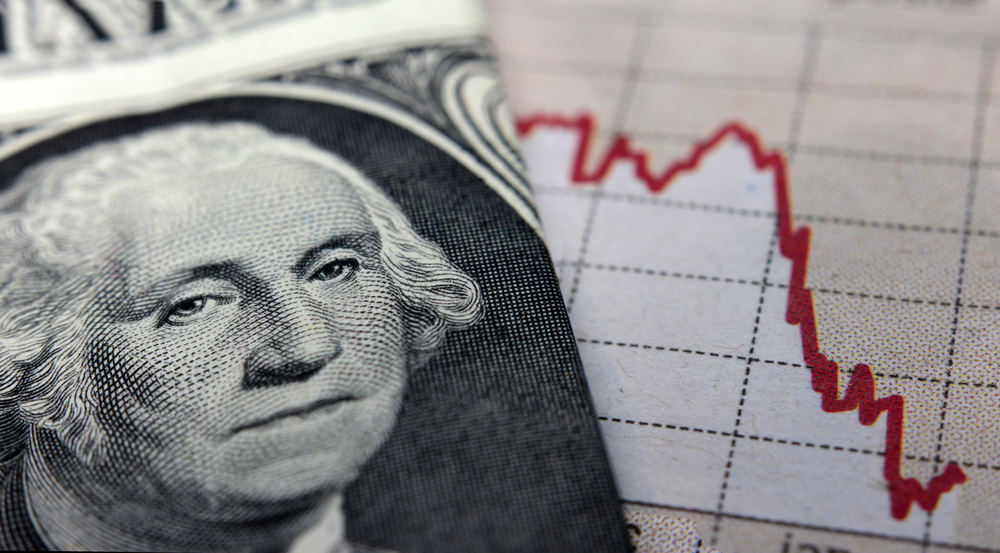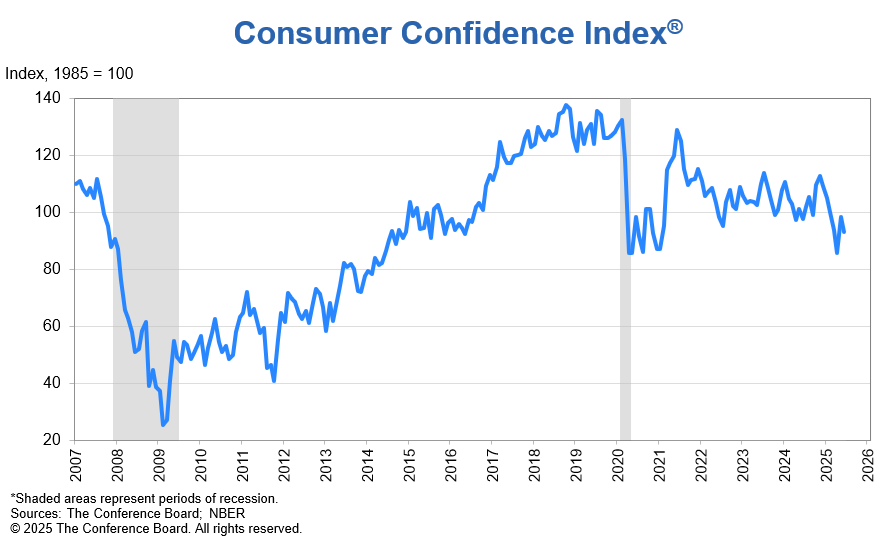
Is there a disconnect between Wall Street and main street?
With the S&P 500 closing less than 0.1% from a record high on Thursday and the Nasdaq 100 actually hitting a record high on Tuesday, investors appear to be shrugging off the lingering uncertainty of both tariffs and the conflict in the Middle East.
There are several reasons for investors to feel confident despite the macroeconomic and geopolitical volatility that has lingered for much of the year so far.
For one, corporate earnings have remained solid, which could be because President Trump’s tariffs have yet to be fully reflected in them.
Whatever the case, the S&P 500 earnings grew by 4.9% during the second quarter, according to data from FactSet.
This is the eighth consecutive quarter of year-over-year earnings growth for the S&P.
There is also the fact that Trump paused his reciprocal tariffs for 90 days, and the U.S. and China reached a temporary truce that lessened the most drastic measures they’d taken on each other.
There is also hope that as the U.S. and its trade partners continue to negotiate new deals, the macro volatility will begin to lessen.
“We expect more trade deals to provide some additional clarity and eventually reduce corporate, consumer and investor anxiety,” Chris Haverland, global equity strategist at Wells Fargo Investment Institute, wrote in a client note. “Deregulation, tax cuts and lower short-term borrowing rates should further bolster earnings.”
But while Wall Street appears to be brimming with confidence that things are about to turn around, U.S. consumers have grown more pessimistic about the economy.
In fact, U.S. consumer confidence has unexpectedly declined sharply in June by 5.4 points to 93, according to the Conference Board’s latest gauge.
This fell below the estimates of all economists surveyed by Bloomberg.
Consumer expectations for the next six months dropped 4.6 points, with respondents anticipating better business conditions for the rest of the year falling by the most in two years.
The Consumer Board’s gauge of present conditions fell by 6.4 points.

“Consumer confidence weakened in June, erasing almost half of May’s sharp gains,” Stephanie Guichard, senior economist, Global Indicators at the Conference Board, said in a statement. “The decline was broad-based across components, with consumers’ assessments of the present situation and their expectations for the future both contributing to the deterioration.”
According to the survey results, the loss in consumer confidence cut across all age groups and nearly every income group.
Perhaps most surprisingly, the largest decline came among Republicans.
However, a recent poll showed that while 82% of Republicans still approve of the job Trump is doing, his approval rating among his own party has dropped 10% since last month.
Your email address will not be published. Required fields are markedmarked